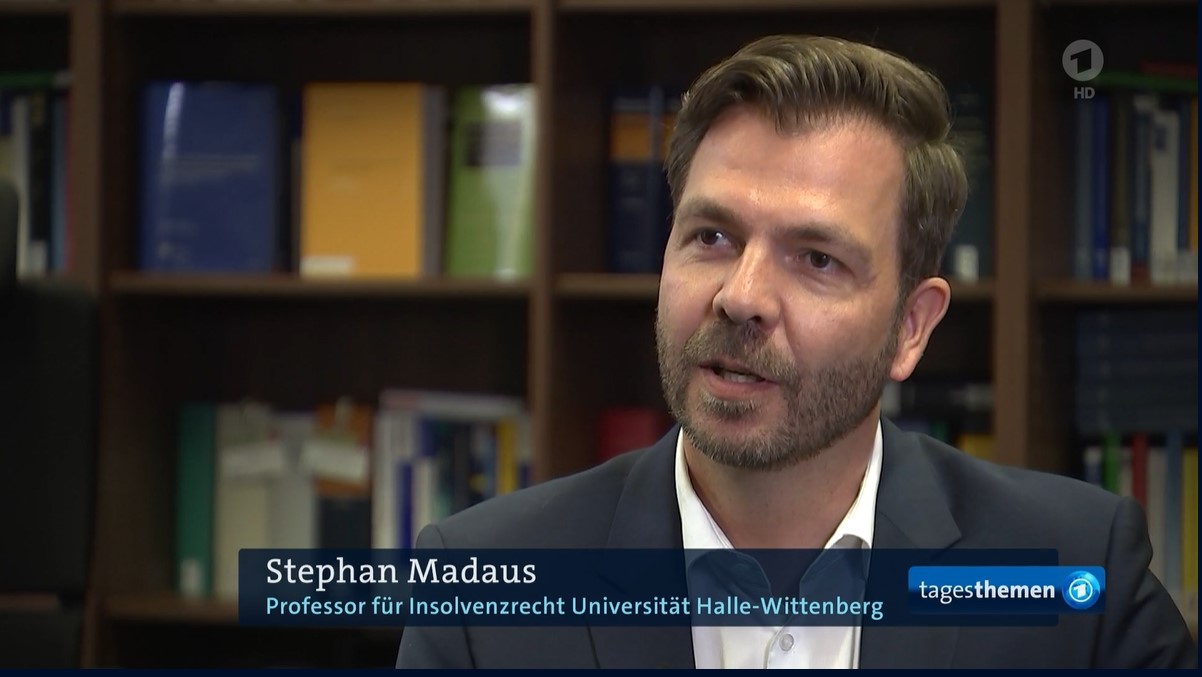Stephan Madaus responds to growing business insolvencies in Germany at ARD

image courtesy of ARD
Prof. Stephan Madaus, CERIL Executive Member, was interviewed for the German television program Das Erste (German news) of the news sender ARD. In an item on the growing number of insolvencies in Germany, he comments on the role of insolvency proceedings in market economies.
Germany has seen a strong decrease in the number of insolvencies in the course of the Corona pandemic, mainly due to state aid. However, the number of insolvency proceedings has risen again between 2022 to and 2023. Current prognoses envisage an increase this year by 16% to around 8400 business insolvencies, making it the highest increase in over 20 years.
Reasons for the increase are related to the high energy prices, inflation, material costs, supply chain problems, Corona loan repayments, sharply increased long-lasting interest rates, and less demand due to a consumer climate affecting almost all sectors. Other external factors also have an influence on the German market, such as geopolitical conflicts in Ukraine, and China – USA rivalry. Internal factors also play their role, as it is becoming increasingly difficult to get new loans, also because many banks exert the so-called ESG criteria.
Prof. Madaus stated that the insolvency regime can offer solutions for distressed businesses, the situation could be seen as an opportunity for businesses adapt their structures and optimize their processes, and consequently preserve jobs. However, as a result of the German government’s COVID-19 policy’s aim – similar to the policies of several other EU Member States – to prevent insolvencies as much as possible, the idea may arise that insolvencies can be avoided. Nonetheless, insolvencies remain an integral part of any market economy. Businesses in a market-economy may win or lose from their competition and risk to be eliminated from the market.
The full interview (in German) can be viewed here (from 13:14).


Comments
Log in to read and post comments